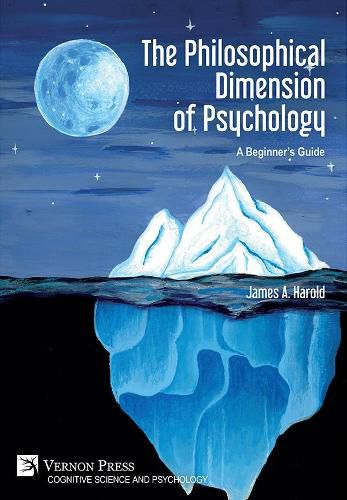Readings Newsletter
Become a Readings Member to make your shopping experience even easier.
Sign in or sign up for free!
You’re not far away from qualifying for FREE standard shipping within Australia
You’ve qualified for FREE standard shipping within Australia
The cart is loading…






This title is printed to order. This book may have been self-published. If so, we cannot guarantee the quality of the content. In the main most books will have gone through the editing process however some may not. We therefore suggest that you be aware of this before ordering this book. If in doubt check either the author or publisher’s details as we are unable to accept any returns unless they are faulty. Please contact us if you have any questions.
Both students and professors typically assume that the content of introductory psychology textbooks, which are empirical in nature, are identical to psychology proper. Yet, what is surprising is how many interesting psychological insights can be found in both philosophy and literature that are often not found in psychology texts. Such insights are clearly psychological in nature, yet they do not go back to any empirical investigation. It seems that basic psychology textbooks-typically providing the basis for undergraduate and graduate psychology programs-represent only one important dimension of psychology: empirical psychology. But there is no simple, co-extensive identity between psychology and empirical psychology.
‘The Philosophical Dimension of Psychology: A Beginner’s Guide’ begins with an investigation of what constitutes the subject matter of psychology, which demonstrates the aspects of psychological reality that are ignored, missed or at times even theoretically denied by mainline contemporary psychology (if they lack an empirical warrant). Such matters include inner conscious experience, the world of intrinsic value, as well as the higher, uniquely personal dimension of human nature (that is, of intellect and will).
This book, therefore, offers a more complete survey of the entire sphere of psychological reality, which could provide the context for more properly interpreting empirical psychological phenomena. For example, should we understand psychological conditioning principles within a broader context of personal freedom? Is a person more rightly conceived in a psychologically immanent way, that is, oriented simply toward the fulfillment of instincts and needs, or is there as well a transcendent orientation, oriented to truth and meaning? Should we understand psychology simply from the point of view of efficient causation, or do we need to also take into account final causation? It will be of interest to psychology students of either undergraduate or graduate level and of great use to those with no prior knowledge of philosophy.
$9.00 standard shipping within Australia
FREE standard shipping within Australia for orders over $100.00
Express & International shipping calculated at checkout
This title is printed to order. This book may have been self-published. If so, we cannot guarantee the quality of the content. In the main most books will have gone through the editing process however some may not. We therefore suggest that you be aware of this before ordering this book. If in doubt check either the author or publisher’s details as we are unable to accept any returns unless they are faulty. Please contact us if you have any questions.
Both students and professors typically assume that the content of introductory psychology textbooks, which are empirical in nature, are identical to psychology proper. Yet, what is surprising is how many interesting psychological insights can be found in both philosophy and literature that are often not found in psychology texts. Such insights are clearly psychological in nature, yet they do not go back to any empirical investigation. It seems that basic psychology textbooks-typically providing the basis for undergraduate and graduate psychology programs-represent only one important dimension of psychology: empirical psychology. But there is no simple, co-extensive identity between psychology and empirical psychology.
‘The Philosophical Dimension of Psychology: A Beginner’s Guide’ begins with an investigation of what constitutes the subject matter of psychology, which demonstrates the aspects of psychological reality that are ignored, missed or at times even theoretically denied by mainline contemporary psychology (if they lack an empirical warrant). Such matters include inner conscious experience, the world of intrinsic value, as well as the higher, uniquely personal dimension of human nature (that is, of intellect and will).
This book, therefore, offers a more complete survey of the entire sphere of psychological reality, which could provide the context for more properly interpreting empirical psychological phenomena. For example, should we understand psychological conditioning principles within a broader context of personal freedom? Is a person more rightly conceived in a psychologically immanent way, that is, oriented simply toward the fulfillment of instincts and needs, or is there as well a transcendent orientation, oriented to truth and meaning? Should we understand psychology simply from the point of view of efficient causation, or do we need to also take into account final causation? It will be of interest to psychology students of either undergraduate or graduate level and of great use to those with no prior knowledge of philosophy.